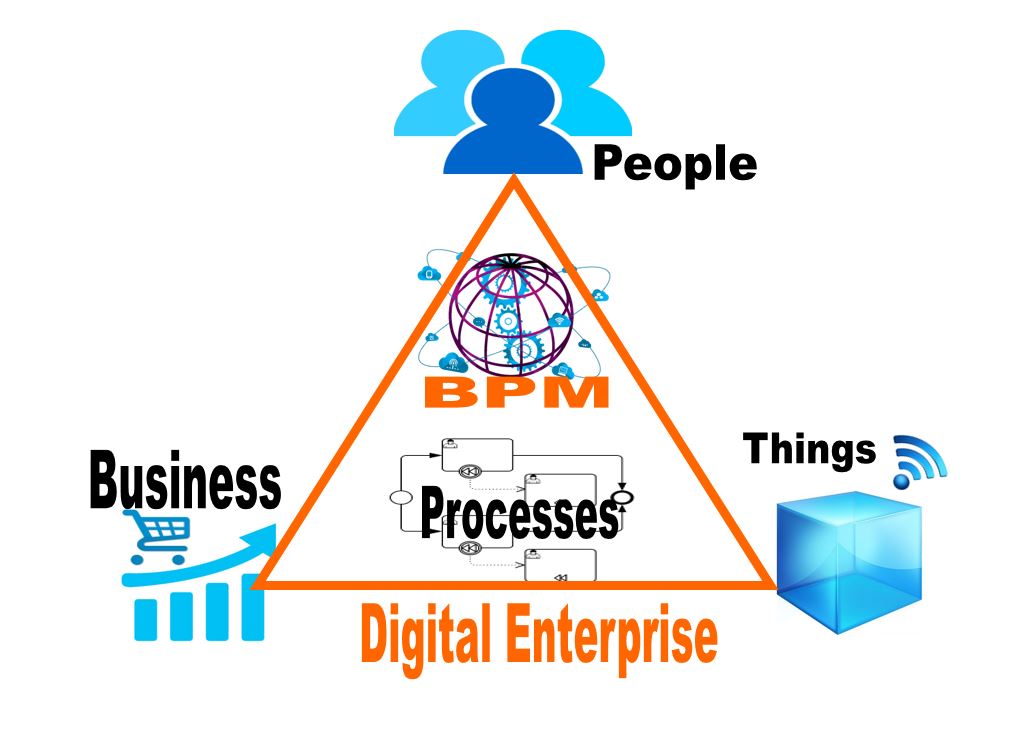¡HI! If you want to propose us a project, send a mail to info@albatian.com


ALL INFORMATION ABOUT
BPM, PROCESS, R & D, TECHNOLOGY
BPM is key to digital transformation
Pedro Robledo, BPM and digital transformation expert

All companies have to adapt to meet the challenges of business if they want to survive against the global economic changes, business competition, new regulations, technological disruptions and especially the expectations of its customers. In order to achieve their goals and develop their capacities for innovation, they must have flexibility to strategically rethink everything every so often and be able to make the necessary changes quickly. In addition, traditional industries are being surprised by new business models that rethink the usual services and products. In many cases as a result of the application of new digital and disruptive technologies that they innovate changing traditional product or service getting a quick success. The reason for the success is justified by the answer given to a need (in many cases it is an invented need) that consumers applaud satisfaction. For example, many companies have affected their businesses by immersion of new business models such as Whatsapp with its phone calls causing a change in the telecommunications industry, or new companies like Uber, Airbnb or Netflix that have revolutionized the market of the Transports, Rental and Audiovisual industries, respectively.
This fast and challenging business innovation requires companies to transform themselves rethinking their current business models to be competitive and survive. This fact is confirmed by Gartner when he says that 25% of businesses that lose competitiveness every year comes from its digital incompetence. We are in a Digital Revolution where disruptive technologies (Social Networks, Mobility, Cloud Computing, Big Data, Internet of Things, Smart Cities, Industry 4.0 ...) are the trigger for the progress of organizations, social progress and the new economy. Companies that effectively manage digital technology can expect to earn in: a better customer experience and engagement, streamlined operations and new lines of business models. But if they do not make a digital transformation using the disruptive technologies, they will disappear as they will not be competitive.
According to KPMG’s 2016 Global CEO Outlook study, 8 out of 10 Spanish CEOs say that innovation to develop new products, improved processes and increased competitiveness are at the center of management strategy. Three priority issues in the personal agendas of executives worldwide. In a context of automating numerous processes and greater predominance of technological tools, the development of the team’s skills is particularly relevant. Companies are finding several challenges to achieving their strategic objectives: the transformation is a challenge, business agility is critical to the delivery of digital transformation, and the internal complexity of the organization undermines success.
A restyling of Business market will occur with amazing speed by the digital transformation of enterprises taking the customer at the center of activity as the main strategic priority. Digital Transformation refers to the use of digital technologies to achieve new business models with disruptive improvements in the organization in order to be more competitive, increase revenue, increase efficiency and get a greater customer (or citizen) satisfaction.
Digital Transformation normally produces three major changes in an organization: a change in the offer of products and services (for example when you include sensors in a product to collect information, you will be able to provide new services for your customer); a change in the value chain to produce new products and offer new services; and these two above changes thus produce a change of the business model. A business change where converge four main pillars: people, companies, things and processes that affect the entire value chain. According to Michael Porter, the concept of value chain it is defined as the set of activities of the company to design, produce, bring to market, deliver and support its products. To run the new value chain to produce the new range of products and services to meet the new business model, requires organizations to review all current processes to make the necessary changes to get the digital transformation. Porter says that who provides competitive advantage are the processes that run the business and that is why they are always seeking new ways to make their processes better than its rivals.
Therefore, the implementation of a digital strategy in a company requires the maintenance of a holistic view of certain business processes; the review of the allocation of resources in the different tasks of business processes, eliminating what does not add value; the review of the key processes to adapt to new business models; rethink strategically the business according to the new digital goals, creating new key processes needed for new business restatements; clarify the business results they need to achieve in the next three to five years, and determine the type of processes that need to successfully manage these results; attract customers consistently across multiple digital channels, so they will need modernization, rationalization and simplification of business processes ... So we can say that the management of business processes is the key to success digital transformation of an organization.
As the digital transformation requires management, review and transformation of business processes to meet new business needs, it is required a proven discipline that permits the analysis of current processes to find deficiencies and areas for improvement; simulation of business impacts of changes on business processes; optimized modeling of existing processes or create new processes that respond to new business models; automation of business processes to get traceability, cost savings, greater efficiency, productivity and efficiency; agility and flexibility to the continuous changes in processes to adjust customer demand; real-time monitoring using predictive analytics to detect problems and business opportunities; and the optimization of business processes for continuous improvement. These requirements are in the Business Process Management (BPM) discipline. The selection of BPM will be the best option for any company to achieve the objectives of its digital transformation. With BPM, any organization gains operational agility; acquires adaptability; gets the highest levels of customer expectations; achieves rapid customer-centric innovation; achieves the desired business results; control strategically expenses; saves resources; complies with the regulations and standards; controls risks and has speed of response necessary to adapt the processes to the new digital and legislative demands.
RELACIONADO
-
How ciber security providers look like neighborhood thugs?
by Albatian Nov. 14, 2016
-
Digital Transformation Life Cycle
by Albatian Nov. 14, 2016
-
Knowledge management and human component of BPM projects
by Albatian Feb. 19, 2013
-
Process Digitalization in Digital Transformation
by Albatian Jan. 9, 2017
-
¿BPMS for moments of crisis?
by Albatian Nov. 12, 2012
-
BPM is the most effective discipline of business management
by Albatian Sept. 15, 2016
-
Lean+SixSigma+TOC provide methods for continuous process improvement in BPM
by Albatian Feb. 13, 2017
-
Implementation of quality standards through BPMS
by Albatian May 28, 2012
-
Agile, the last trend in information technology
by Albatian Feb. 19, 2017
-
More than 66% of BPM employment is not covered due to lack of professionals
by 4 Feb. 8, 2018
-
Where to learn BPM in the University?
by 4 Nov. 2, 2018
-
Any Business Innovation and Transformation requieres an Enterprise Architecture
by Albatian March 27, 2017
-
A strong Enterprise Architecture practice will help prepare organizations for GDPR
by 4 Sept. 18, 2017
-
Not enough with an independent Management of a Process
by 4 May 9, 2017
-
How to Calculate the ROI of a BPM Initiative?
by 4 July 9, 2017
-
Differences between Processes, Procedures and Work Instructions
by 4 Dec. 7, 2017
-
Process Mining plays an essential role in Digital Transformation
by 4 Sept. 6, 2018
-
Industry 4.0: the bpm challenge
by 4 July 9, 2017
-
Before automating a process ... improve it!
by 4 Jan. 8, 2020
-
How to guide organizations in Maturity in BPM?
by 4 March 16, 2019











